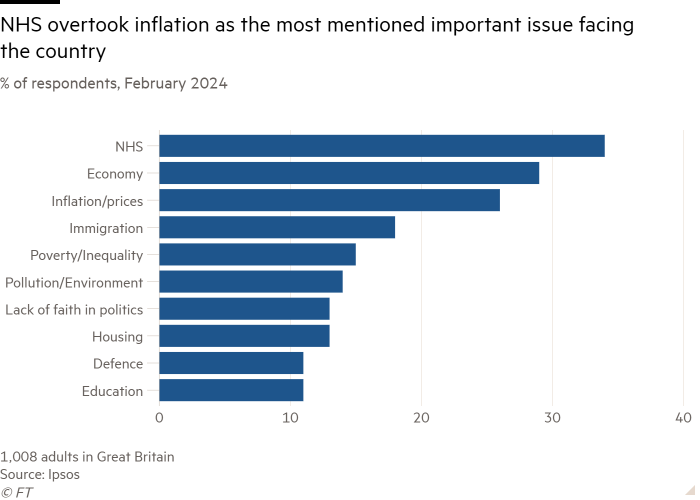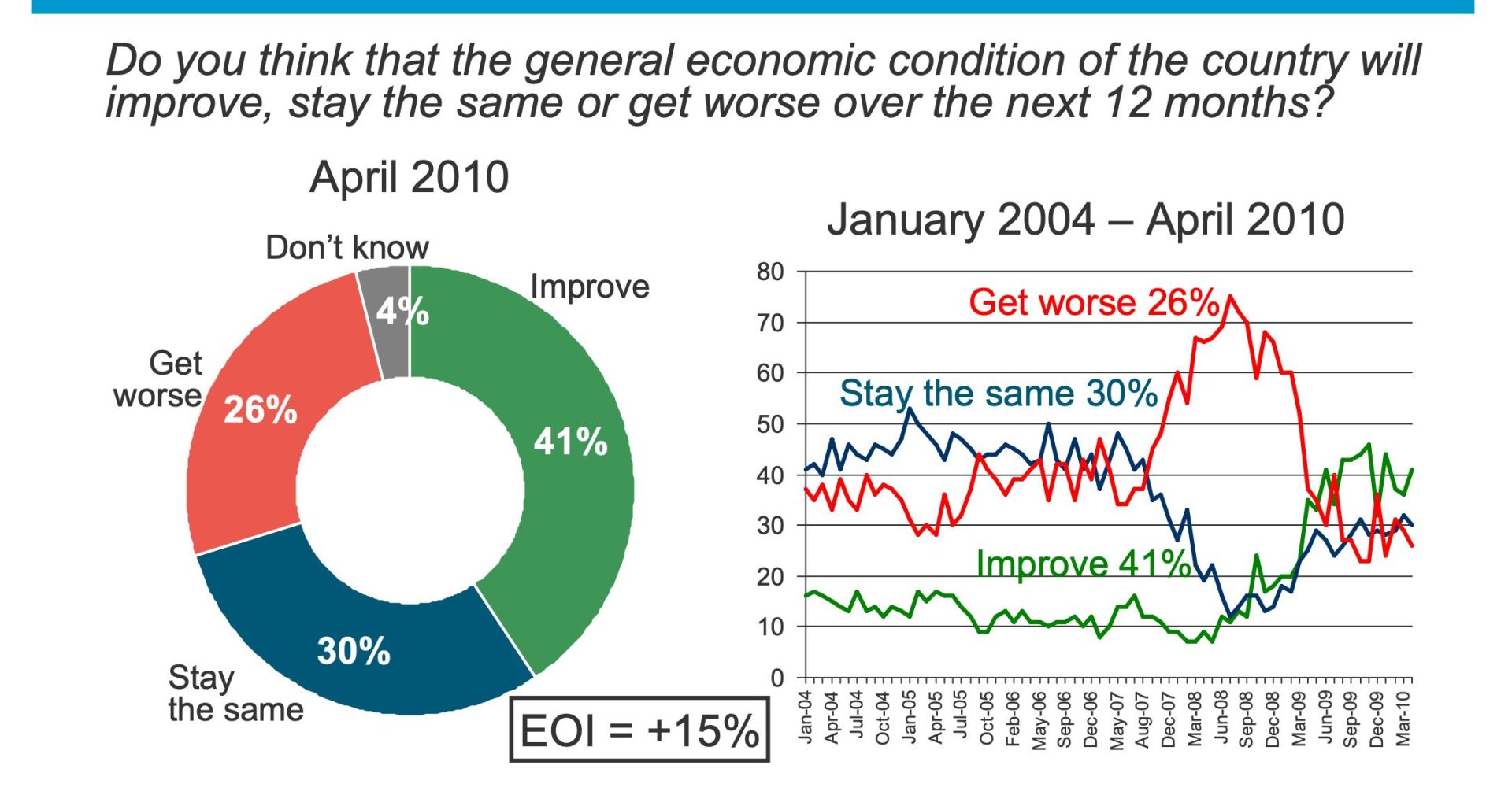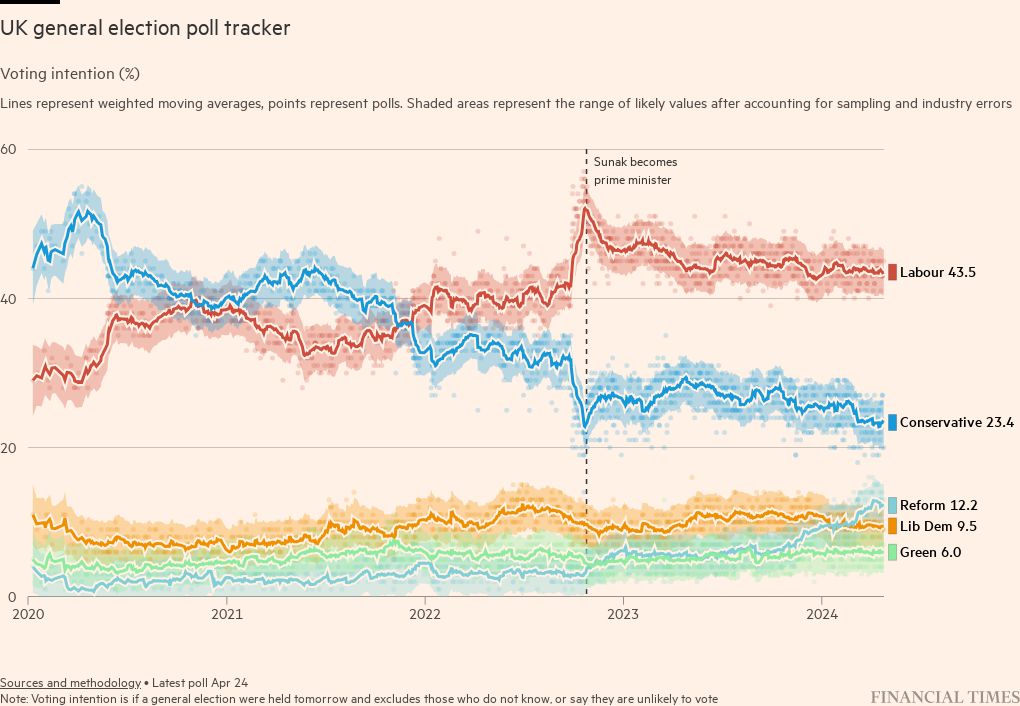Unlock the Editor’s Digest for free
Roula Khalaf, Editor of the FT, selects her favourite stories in this weekly newsletter.
This article is an on-site version of our Inside Politics newsletter. Sign up here to get the newsletter sent straight to your inbox every weekday
Good morning. A new study shows record levels of dissatisfaction with the National Health Service. It’s a reminder of one of the government’s biggest problems and is one reason why we should take the polls seriously. Some more thoughts on that below.
Inside Politics is edited by Georgina Quach. Read the previous edition of the newsletter here. Please send gossip, thoughts and feedback to insidepolitics@ft.com
Fare thee well
Satisfaction with the National Health Service is at its lowest since the British Social Attitudes survey began measuring it back in 1983 (here’s the PDF of the report). Just 24 per cent of respondents in England, Scotland and Wales say they are satisfied with the NHS, while 52 per cent say they are unhappy with the standard of service provided. Both are record numbers.
The biggest reason to believe that the Conservative party is heading towards a severe defeat isn’t the current state of the polls, or the successive local elections and by-elections that suggest the polls are about right. It’s that voter dissatisfaction with the public services is consistently worse than it was in 1997 while polling about the state of the economy is worse than it was in 2010. Here are the key charts from Ipsos, the UK’s oldest pollster.


The positive spin you can put on this, from a Conservative perspective, is that the economy has turned a corner and that voter perceptions of the economy may change. Both of those sound about right to me.
But there is no equivalent argument to be made about the condition of the public realm. The state of the NHS, and parties’ plans to drive up standards, means it is set to be the number one issue in the election campaigns, as separate recent polling by Ipsos found that the health service ranks top of voters’ concerns.

Broadly speaking, Labour wins elections when the following two things have happened: a) Labour has convinced enough of middle England that they are not scary, and b) British voters are worried about the condition of the public services.
The Labour leadership is obsessed with demonstrating a), while the Conservative leadership appears to have put very little thought into how to go about avoiding b). If anything, quite the reverse. As I write in my column this week, Rishi Sunak’s strategy is to go into the next election with a platform that is in every major aspect further from the median voter than Boris Johnson:
Boris Johnson’s leadership increasingly recalls that old joke about the 1960s — if you can remember it, you weren’t really there. But, contrary to the myth that has grown around it, the former leader’s manifesto was pretty close to that favoured by the median Briton. He promised more money for schools, police and hospitals, said that tax rates would remain flat and falling and was committed to the net zero programme.
In almost every way, Sunak offers a plan further away from the wishes of the average Brit than the one Johnson had. A YouGov poll found that 57 per cent of Britons favour spending more on public services against 27 per cent who prioritise tax cuts, while More in Common found 66 per cent saying they are either “worried” or “very worried” about climate change, essentially regardless of class, location or creed. Sunak, meanwhile, proposes to go to the country on a ticket that pledges to cut public spending to fund the abolition of national insurance and a slower path to net zero.
When a political party that was elected after running towards the median voter runs away from them and towards itself: how do you think that’s going to turn out? It shouldn’t be a difficult question: it’s a movie with only one ending, no matter how many times political parties insist on remaking it.
It’s true to say that British voters are volatile and because of this the next election result can’t be said to be set in stone. But when we get such consistent information about the key issues that are going to shape that contest, and when the government of the day doesn’t have enough time left to address those issues, volatility only gets you so far.
Now try this
I have finished Bad Actors, which sadly brings me up to date with Mick Herron’s Slough House novels. It was gripping and the parody of Dominic Cummings is incredibly well-observed.
I’m having a pause in which I re-read Percival Everett’s Erasure, the enjoyable novel that became the movie American Fiction, before diving into Herron’s standalone novels. I had forgotten just how dark Erasure is.
Top stories today
Below is the Financial Times’ live-updating UK poll-of-polls, which combines voting intention surveys published by major British pollsters. Visit the FT poll-tracker page to discover our methodology and explore polling data by demographic including age, gender, region and more.
Read More: World News | Entertainment News | Celeb News
FT











